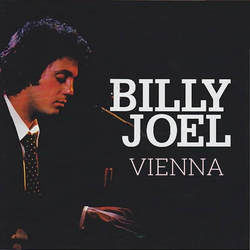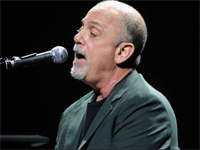

Lastly, and most importantly, the line, “slow down, you crazy child.” Yes, Billy, yes!!! Obviously he’s not trying to call his listeners children, he’s making the point that there is always somewhere for us to go, and the journey (this is cliché) is what’s important. Vienna By Billy Joel - Digital Sheet Music Price: 6.99 Includes 1 print + interactive copy. Next one is “And you know when the truth is told.” This line introduces choruses, and the fact that Joel highlights honesty says a lot about the meaning behind the song. The first one is obvious (because it includes the title!): “When will you realize, Vienna waits for you.” So we hear about Joel’s connection to the city, and that it’s a metaphor for all the places that await us. Billy Joel's Vienna by The Carleton Singing Knights. 'Vienna' is a song from Billy Joels 1977 album The Stranger, released as the B-side to his 'Shes Always a Woman' single.In a July 2008 New York Times article, Joel cited this as one of his two favorite songs, along with 'Summer, Highland Falls'.Why did I pick Vienna to use as a metaphor for the rest of your life My father lives in Vienna now. There are three, and yes, one does include the title, but the most important one (again in my opinion) does not. You May Be Right (Billy Joel song) - Elton John & Billy Joel (live). The crucial lyric of “Vienna,” in my opinion, is not the lyric that includes the title. While words used like “about” and “out” rhyme perfectly, words like “fine” and “time” almost rhyme. But when rhyme is said, “near rhyme” is what is meant. The next stanza consists of the first two lines rhyming again, however the last two lines end on a word that rhymes with the last word of the previous stanza (confusing, I know). In each verse, the first two lines of each individual stanza rhyme, and the last two end on a word, that rhymes with nothing (yet). And “Vienna” is no exception to this, in fact, it may be the song behind Joel’s title. They don’t pay money for you to sit there and be Billy Joel.Billy Joel is a song-writing genius. You should never lose sight of the fact that you’re there to entertain. A proud entertainer with an almost religious faith in the accessibility of popular music, Joel once reflected on his job as such, to Rolling Stone: “We go into the studio, the song gets mixed and it’s eventually heard through tiny car-radio speakers. Like his friend Bruce Springsteen, Joel has an air of the everyman about him, the megastar somehow intimately in touch with the aspirations and disappointments of ordinary people. (Having returned to Long Island in the mid-'70s, Joel commuted by helicopter.)


In the 1990s, Joel shifted his energy to touring, remaining a perennial blockbuster well into the 2010s, performing more than 100 shows at Madison Square Garden, many of them sold out.

Raised in the planned suburb of Levittown, Long Island (a model for the postwar building boom), Joel spent his early career in Los Angeles, working briefly as the singer in a bar on Wilshire Boulevard-an experience commemorated in his signature song, “Piano Man.” He went on to become one of the most successful artists in pop, bridging reflective singer-songwriter material (1982’s The Nylon Curtain) with sock-hop nostalgia like “The Longest Time” and “It’s Still Rock and Roll to Me” for a theatrical, particularly American sound whose resonances can be heard not only in piano balladeers, but in pop omnivores like Bruno Mars and Lady Gaga. This summary of 'Vienna' does not do the song justice. The song touches and moves you like few songs can, both musically and lyrically. Broad, earnest, and unreservedly sentimental, Billy Joel remains the quintessential showman of pop music. Billy's producer Phil Ramone once said that the one Billy Joel song that aspiring songwriters most often asked him about is 'Vienna.' It's no wonder.


 0 kommentar(er)
0 kommentar(er)
